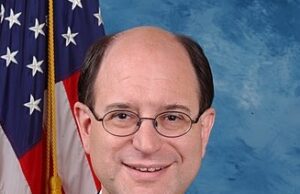Grants to support capital needs of 3,100 public housing authorities
WASHINGTON, D.C. – March 19, 2014 – (RealEstateRama) — U.S. Department of Housing and Urban Development Secretary Shaun Donovan today awarded nearly $1.8 billion to public housing authorities in all 50 states, as well as the District of Columbia, Guam, Puerto Rico and the U.S. Virgin Islands, to make major large-scale improvements to the nation’s 1.1 million public housing units. View funding by public housing authority here.
The grants announced today are provided through HUD’s Capital Fund Program, which provides annual funding to approximately 3,100 public housing authorities to build, repair, renovate and/or modernize the public housing in their communities. These housing authorities use the funding to do large-scale improvements such as replacing roofs or making energy-efficient upgrades to replace old plumbing and electrical systems.
“This funding is critically important to public housing agencies as they work to provide the best housing possible for their residents,” said Donovan. “While the funding we announce today will never be enough to meet the tremendous backlog of capital needs, HUD will be working closely with the Congress to expand efforts to generate approximately $6 billion in private investment for the recapitalization of public housing.”
For more than 75 years, the federal government has been working and investing billions of dollars in developing and maintaining public and multifamily housing – including providing critical support through the Capital Fund grants announced today. Still, the nation continues to lose approximately 10,000 public housing units each year, primarily due to disrepair. In 2011, HUD released Capital Needs in the Public Housing Program, a study that estimated the capital needs in the public housing stock in the U.S. The study found the nation’s 1.1 million public housing units are facing an estimated $25.6 billion in large-scale repairs. Unlike routine maintenance, capital needs are extensive improvements required to make the housing decent and economically sustainable, such as replacing roofs or updating plumbing and electrical systems to increase energy efficiency.
To help protect the considerable federal investment in public housing, and respond to the growing demand for affordable rental housing, the Obama Administration proposed the Rental Assistance Demonstration (RAD), a comprehensive strategy that complements the Capital Fund Program and offers a long-term solution to preserve and enhance the country’s affordable housing stock, including leveraging public and private funding to make critically needed improvements.
Since Congress approved the RAD demonstration in November of 2011, early results show it is generating significant additional capital for public and assisted housing. HUD has made awards to 60,000 public and assisted housing units in more than 340 different projects across the country. Through these awards, housing authorities have proposed to generate approximately $3 billion in capital repairs by leveraging private debt and equity, which will preserve or replace distressed units and support local jobs in their communities – all without additional federal resources.
Currently, the Department has received applications from PHAs for an additional 116,000 units under RAD. To support the growing demand for RAD, the President’s FY 2015 budget proposal requests to eliminate the RAD cap, which would facilitate the recapitalization of public housing.
###
HUD’s mission is to create strong, sustainable, inclusive communities and quality affordable homes for all.
HUD is working to strengthen the housing market to bolster the economy and protect consumers; meet the
need for quality affordable rental homes: utilize housing as a platform for improving quality of life; build
inclusive and sustainable communities free from discrimination; and transform the way HUD does business.
More information about HUD and its programs is available on the Internet at www.hud.gov and
http://espanol.hud.gov. You can also follow HUD on twitter @HUDGov, on facebook at
www.facebook.com/HUD, or sign up for news alerts on HUD’s Email List.
Jereon Brown
(202) 708 – 0685
http://www.hud.gov/news/index.cfm













